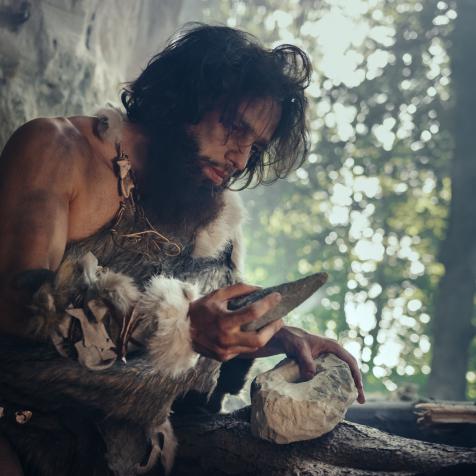
Curiosity Daily Podcast: Romanesco Fractals, Dolphin Names & Evolution vs. Mating
Learn about evolutionary compromises; the fractals of Romanesco cauliflower; and dolphins that learn each other’s names.
Episode Show Notes:
Conflict traits: when evolution and mating conflict with each other by Cameron Duke
- Experiments show natural selection opposes sexual selection. (2021). EurekAlert! https://www.eurekalert.org/pub_releases/2021-06/uoe-esn060721.php
- Mulder, M. B., & Rauch, K. L. (2009). Sexual conflict in humans: Variations and solutions. Evolutionary Anthropology: Issues, News, and Reviews, 18(5), 201–214. https://doi.org/10.1002/evan.20226
- Okada, K., Katsuki, M., Sharma, M. D., Kiyose, K., Seko, T., Okada, Y., Wilson, A. J., & Hosken, D. J. (2021). Natural selection increases female fitness by reversing the exaggeration of a male sexually selected trait. Nature Communications, 12(1). https://doi.org/10.1038/s41467-021-23804-7
Here's why Romanesco cauliflower grows in a fractal pattern by Briana Brownell
- Ouellette, J. (2021, July 8). What fractals, Fibonacci, and the golden ratio have to do with cauliflower. Ars Technica; Ars Technica. https://arstechnica.com/science/2021/07/what-fractals-fibonacci-and-the-golden-ratio-have-to-do-with-cauliflower/
- Azpeitia, E., Tichtinsky, G., Le Masson, M., Serrano-Mislata, A., Lucas, J., Gregis, V., Gimenez, C., Prunet, N., Farcot, E., Kater, M. M., Bradley, D., Madueño, F., Godin, C., & Parcy, F. (2021). Cauliflower fractal forms arise from perturbations of floral gene networks. Science, 373(6551), 192–197. https://doi.org/10.1126/science.abg5999
Dolphins can learn each other's names by Grant Currin
- Morell, V. (2021, April 22). Dolphins learn the “names” of their friends to form teams—a first in animal kingdom. Science | AAAS. https://www.sciencemag.org/news/2021/04/dolphins-learn-names-their-friends-form-teams-first-animal-kingdom
- King, S. L., Connor, R. C., Krützen, M., & Allen, S. J. (2021). Cooperation-based concept formation in male bottlenose dolphins. Nature Communications, 12(1). https://doi.org/10.1038/s41467-021-22668-1
- Shyr, L. (2021, May 5). Dolphins Help Those Who’ve Helped Them Before, Even When They’re Not Friends. Atlas Obscura; Atlas Obscura. https://www.atlasobscura.com/articles/dolphins-work-in-teams
Follow Curiosity Daily on your favorite podcast app to learn something new every day with Cody Gough and Ashley Hamer. Still curious? Get exclusive science shows, nature documentaries, and more real-life entertainment on discovery+! Go to https://discoveryplus.com/curiosity to start your 7-day free trial. discovery+ is currently only available for US subscribers.
See omnystudio.com/listener for privacy information.













